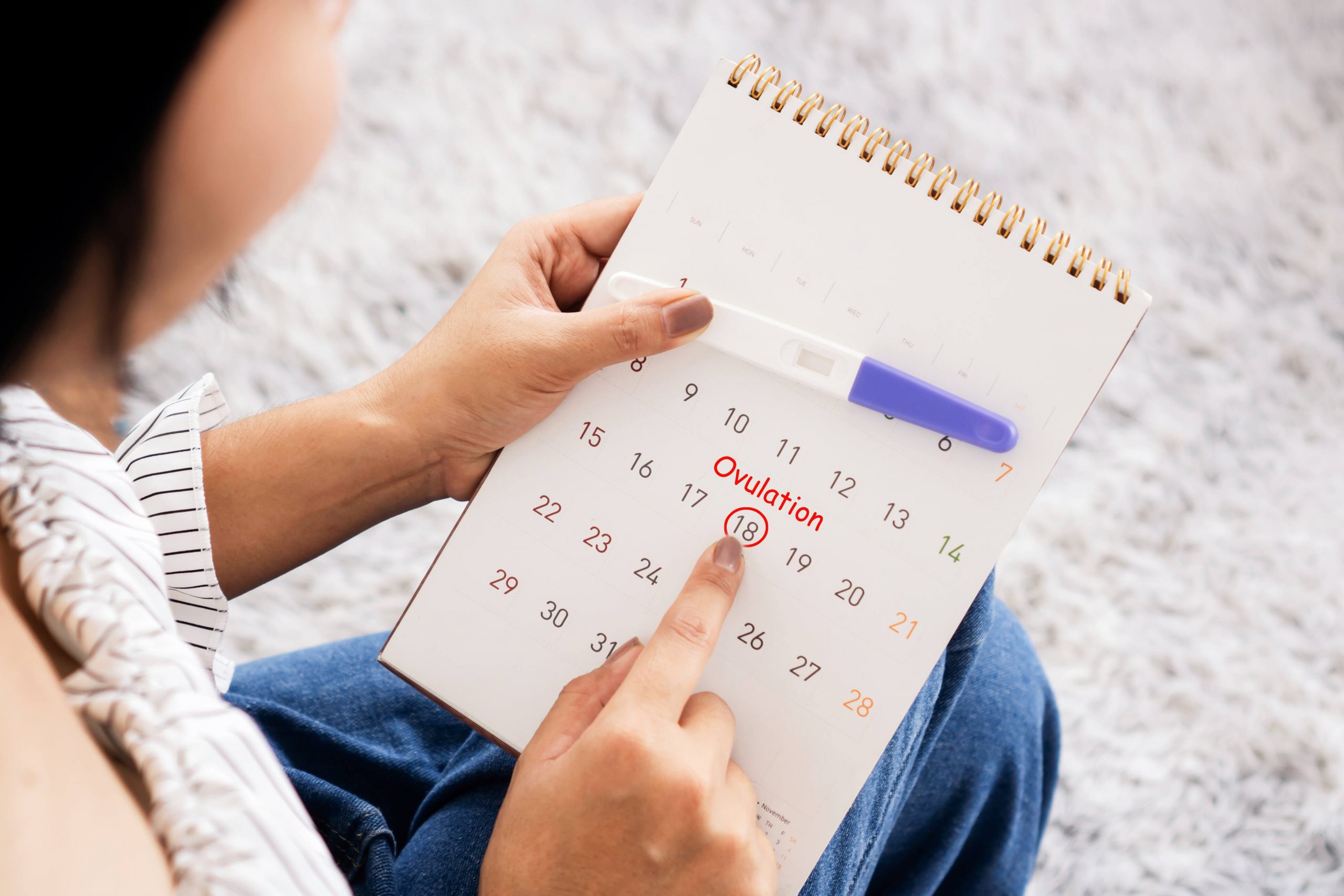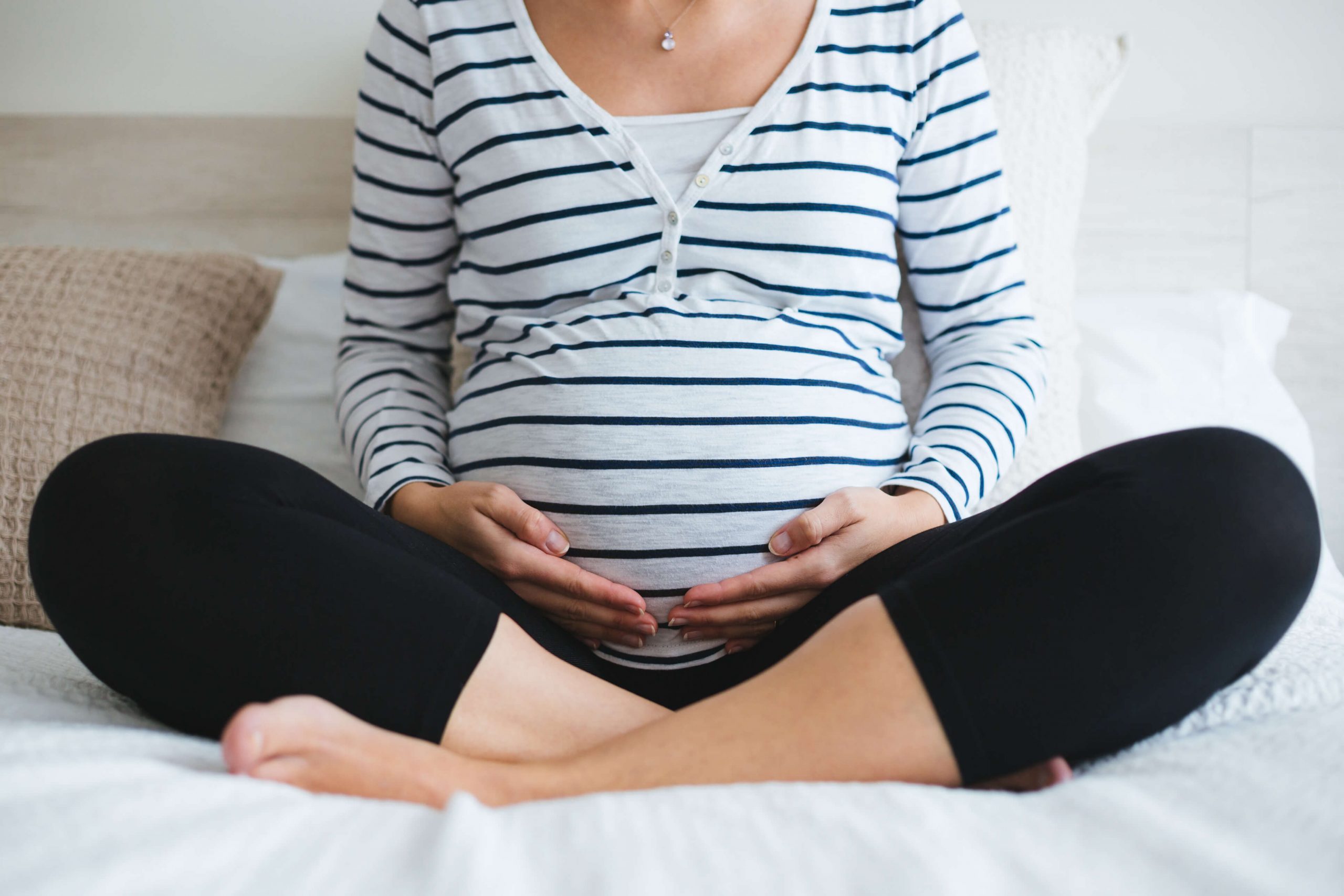Pregnancy Care
Understanding Ovulation: How to Spot Your Most Fertile Time

Pregnancy can be a complex process. For some, it can take a great deal of planning and time before a woman becomes pregnant.
Understanding and keeping track of your menstrual cycle and ovulation period, coupled with the knowledge of how conception works, is vital when planning to have a baby. Conception occurs when a sperm cell from a man fuses with and fertilises a woman’s egg cell, forming an embryo.
Proper planning and understanding ovulation will allow you to know when you are most fertile, significantly increasing your chances of conception.
What is ovulation?
Ovulation is a phase in your menstrual cycle when one of your two ovaries releases an egg. This egg cell will then travel down your fallopian tube, where it may meet a sperm cell and become fertilised.
A typical menstrual cycle lasts for about 28 days, but may vary anywhere from 21 to 35 days. Theoretically, ovulation happens around day 14 or the midpoint of your menstrual cycle; however, most women experience ovulation either four days before or after their menstrual cycle’s midpoint.
How to spot your fertile window?
Your fertile window is the period when you have the highest chance of getting pregnant.
It generally lasts for about 6 days—which is 5 days before ovulation and on the day of ovulation itself.
How long does ovulation last?
Although the fertile window typically lasts for about 6 days, a standard ovulation cycle lasts for only 12 to 24 hours. After 24 hours, the egg cell will dissolve and disappear from the fallopian tube (unless fertilised by a sperm cell within 24 hours).
Signs of ovulation
Common signs of ovulation include:
- A gradual rise in your basal body temperature (your body temperature when you are at rest), which can be measured using a basal body thermometer.
- Clearer and wetter cervical mucus. Cervical mucus is a fluid discharge that happens during or just before ovulation. This egg white-like secretion helps the sperm to travel into your reproductive system to fertilise your egg.
- Cramps, ranging from mild to sharp pain.
- Increased sex drive due to rising estrogen levels
- Breast tenderness due to changes in estrogen levels
How to track ovulation?
There are various ways to track ovulation and your fertile window, including:
- Chart and keep track of your menstrual cycle. This can be done by keeping a menstrual cycle calendar using a period-checking mobile application or an ovulation calculator to predict your ovulation day.
- Monitor your body and take note of the signs of ovulation. Common indicators such as clear vaginal secretion or cramps may signal that your ovulation day is approaching.
- Measure your basal body temperature. Your basal body temperature is the temperature when you are at rest. This temperature can be measured using a basal body thermometer and is the most accurate when taken first thing in the morning when you wake up.
A slight rise in your basal body temperature indicates that ovulation is taking place.
- Purchase an ovulation predictor kit. An ovulation predictor kit measures your hormone levels (Luteinizing hormone) in your urine, indicating when you are about to ovulate.
How to maximise your chances of getting pregnant?
Now that you understand the importance of ovulation and how it affects conception, here are some tips to maximise your chances of getting pregnant:
- Timing. Having sexual intercourse during your fertile window or as close as possible to the day of your ovulation (2 to 3 days before ovulation or on the day itself) ensures that you have the highest chance of getting pregnant. This is because the sperm cell can survive in the female body for around 5 days. As such, sexual intercourse during this fertile period maximises the chances of your egg cell being fertilised by any sperm cells in your body.
- Maintaining a healthy lifestyle. This includes avoiding alcohol and smoking, limiting your caffeine intake, exercising regularly and having a healthy and balanced diet.
When should you see a doctor?
In general, you should see a doctor if you:
- Are unable to conceive and become pregnant, especially if you have been actively trying for a year and are below 35 years old. However, if you are above 35, you should wait for about 6 months before consulting a doctor.
- Have a history of multiple miscarriages or possess medical conditions that may affect fertility.
Conclusion
Although the chance of getting pregnant is the highest during your fertile window, your pregnancy is not 100% guaranteed. Pregnancy depends on various factors, and conceiving during your fertile window is just one of the many aspects.
If you have been trying to conceive for a few months or more without success, or have a history of miscarriage(s), you can book an appointment with one of our skilled obstetrics and gynaecology specialists for consultation and medical treatment.
WHO WE ARE
About SOG Health Pte. Ltd.
Established in 2011, SOG Health Pte. Ltd. (“SOG”) is a leading healthcare service provider dedicated to delivering holistic health and wellness services to the modern family.
With a long and established track record in Singapore providing Obstetrics and Gynaecology (“O&G”) services such as pre-pregnancy counselling, delivery, pregnancy and post-delivery care, the Group has since further expanded its spectrum of healthcare services to include Paediatrics, Dermatology, and Cancer-related General Surgery (Colorectal, Breast & Thyroid).
The Group’s clinics, under its four operating segments of O&G, Paediatrics, Oncology and Dermatology, are strategically located throughout Singapore to provide easy access to its patients.
- Obstetrics
- Gynaecology
- GynaeOncology
- Breast, Thyroid & General Surgery
- Colorectal, Endoscopy & General Surgery
- Dermatology
- Paediatrics
Consult With A Specialist From SOG
Visit one of our specialists today to learn more about your health!
Recommended Specialists
Book An Appointment
Fill up this form and our clinic will get back to you shortly.
For general enquiries, please click here.








